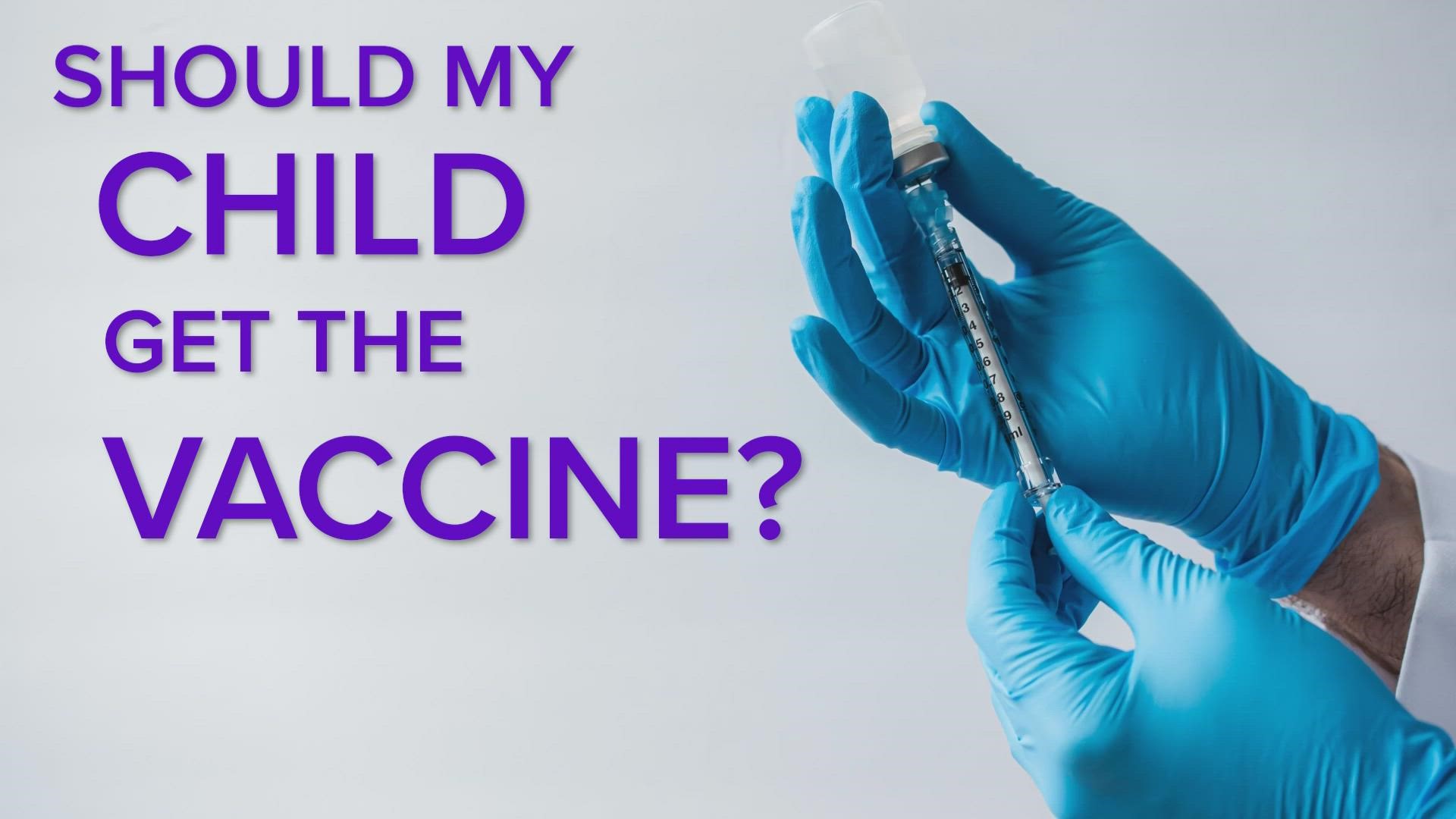DALLAS — “As pediatricians, we welcome those questions and think they're really important, valuable conversations,” Children’s Health Medical Director of Primary Care Dr. Dawn Johnson said.
Should my child get the COVID vaccine?
“It's probably one of the most common questions,” Dr. Johnson said. “We've seen that kids, especially with 5- to 11-year-olds, have done very well with the COVID-19 vaccination and that so far, they have fewer symptoms than older people do.”
“(Vaccination) is a very, very powerful tool. This is how we're going to get things under control,” Children’s Health Chief of Infectious Diseases at Dr. Jeffrey Kahn said. “I can't emphasize this enough: Get your children vaccinated.”
What about boosters? Do you recommend those?
A CDC panel of experts voted to recommend Pfizer booster doses to kids ages 12-15 after reviewing data on Wednesday. The final signoff from CDC Director Rochelle Walensky came a few hours later, paving the way for the first shots to go into arms Thursday morning.
“Kids are going back to school and basketball and track and those sorts of things. There's increased risk of exposure to COVID because they're in those settings, and so the booster: This is an ideal time to have the booster done,” Dr. Johnson said.
“The data are quite clear that a booster dose really raises the antibody level in your blood against the omicron variant specifically,” Dr. Kahn said. “So there's scientific data to support the fact that these boosters work and they work quite well.”
We know breakthrough cases can happen. So, what are common symptoms parents should look out for?
“Cold symptoms, fevers, fatigue, headaches,” Dr. Johnson said.
“I don't think that the symptomatology of this new (Omicron) variant is that dramatically different from the previous variants,” Dr. Kahn. “It's just that this one’s spreading much more quickly.”
How can I find testing?
The short answer: It's complicated. And it can be very frustrating to find these days, pediatricians acknowledge.
“Testing, if it's available, is a very useful tool to, again, to try to get this this pandemic, or at least the local outbreaks under control,” Dr. Kahn said.
For complete coverage of COVID-19, click here.
What can you do to stay safe while visiting unvaccinated family members?
(Thanks to viewer, Shelly H., for sending WFAA this question.)
“Then it becomes mitigating risks,” Dr. Johnson said. “If you are outside, your risk is smaller. If the grandmother is masked, her risk is smaller. If they're using hand sanitation, the risk is smaller.”
What other questions are you hearing from your patients?
“I mean, of course we're all getting a lot of questions about when is this going to end?” Dr. Kahn said.
“I feel going into this current increase in cases, we are more ready now than we have ever been in terms of…having good guidelines, having a vaccine, and so we're prepared,” Dr. Johnson said. “I think we're going to come through this really well.”

